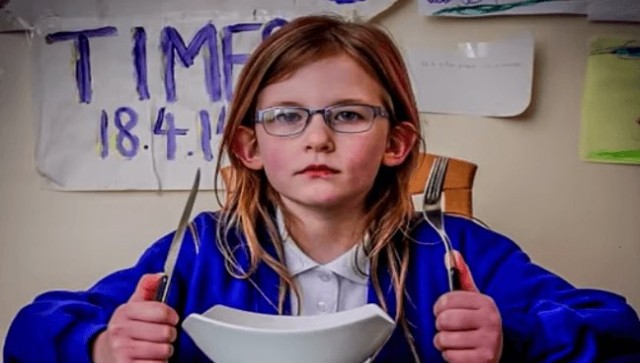I’m sure you’ve heard the saying “no pain, no gain.” However, this is untrue for a young girl in the United Kingdom known as “bionic,” who barely eats, sleeps, or experiences pain. When Olivia Farnsworth was struck by a car and hauled down the street, she stunned medical professionals by walking away unharmed. Here’s all we know about the young “bionic” girl. The only “bionic” girl in the world The teenager has a condition known as chromosome six deletion. According to the National Organisation for Rare Disorders, it is a chromosome abnormality that occurs when there is a missing copy of the genetic material located on the short arm (p) of chromosome 6.” People who have a deletion on chromosome 6p often exhibit distinct facial features, behavioural problems, intellectual difficulties, and developmental delays. It is believed that Olivia is the only person in the world who possesses all three symptoms together.
The 'bionic' girl who doesn't eat, rarely sleeps and didn't even feel pain when she was dragged down the street by a car.
— Thái Hưng Lê (@Currency_Secret) December 1, 2023
Doctors diagnosed Olivia Farnsworth with a rare chromosome 6 deletion.
Her mother noticed she never cried as a baby and didn't nap in the day.
She has stayed… pic.twitter.com/cxwcsifw72
Just 100 of the 15,000 cases of chromosomal disorders in their global database match Olivia’s “6p” deletion. Chief executive Dr Beverly Searle, a former research biologist, told Dailymail that Olivia was the only case they had heard of in the world. No pain, no hunger, no sense of danger Olivia’s 32-year-old mother, Niki Trepak, who hails from Huddersfield said the condition meant her daughter had “no sense of danger.” “She got run over and dragged down the street by a car and she didn’t complain. She was dragged about ten car lengths down the road. It was horrendous. I don’t think it’s something I will ever get over. I was screaming and all my other children were screaming as she ran out,” she said, according to Dailymail. “But Olivia was just like, ‘What’s going on?’. She just got up and started walking back to me. Because of the impact she should have had severe injuries. She had a tyre mark on her chest. But her only injuries were she had no skin on her toe or her hip. The doctors think what saved her from injury was she didn’t tense up.” She was only seven years old when the accident took place in 2016. Trepak, who is also the mother to Ella-Mae, 12, Bradlee, 10, Archie, six, and Poppy, four, claimed that shortly after Olivia was born, she began exhibiting symptoms of her illness. According to Trepak, Olivia stopped sleeping during the day at the age of nine months and never cried as an infant. “She didn’t feed, when she was nine months old she started rejecting my milk. I thought she didn’t like it but since then, she’s never liked food. She’s almost become conditioned to eat, she eats at school because everyone else does but she doesn’t really need it. She never gets hungry. At home she will go through phases of eating the same thing for months and months and then go off it - once it was milkshakes, once butter sandwiches, once chicken noodles,” she explained, according to NDTV. “She also once fell badly and ripped her lip off and didn’t say anything. She had to have major plastic surgery to correct it.” Her hair did not develop correctly until she was four years old due to the disorder. Though she is usually happy kid, Olivia occasionally has violent outbursts and now requires medicine to help her sleep. Dailymail quoted her mother as saying, “She’s head-butted me, punched and kicked me and can have outbursts of swearing which can be embarrassing if we’re out in public. It happened in a park the other week and people were wondering what’s going on. They don’t know what’s wrong. This is why I want to raise awareness or chromosome 6 problems. To look at Olivia you don’t know anything’s wrong with her.” Trepak said that her family has received assistance from the Unique support organisation for chromosome disorders. No treatment for the disorder According to Dr Searle, there is no treatment for chromosome disorder. She told Dailymail, “But what we can do is alleviate the symptoms. We try to find matches and provide information for families, which can be great for friendship and local support.”


)

)
)
)
)
)
)
)
)



